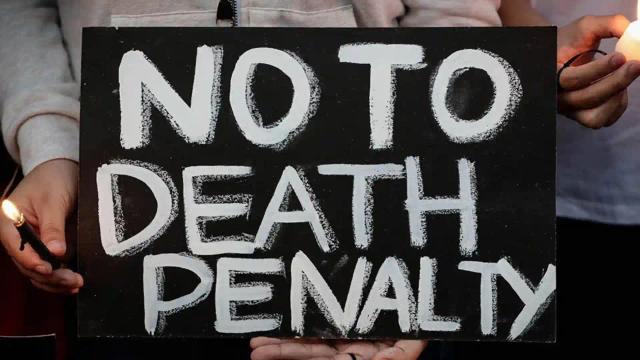Update On Zimbabwe's Death Penalty Abolition Bill

Zimbabwe is moving to abolish death sentences in line with the Constitution enacted in 2013 which abolished mandatory death sentences and limited the death penalty to cases of murder “committed in aggravating circumstances”. The constitution bars death sentences for women and men aged under 21 or over 70 at the time of committing the crime. A draft Death Penalty Abolition Bill to amend two Acts of Parliament has undergone revisions over the years. We present the 2023 version below.
DEATH PENALTY ABOLITION BILL, 2023
_________________
MemorandumSection 48 of the Constitution protects the right to life but states that a law may permit a court, in limited circumstances, to impose the death penalty on men convicted of aggravated murder. Section 48 is permissive, and its effect is that Zimbabwean law does not have to provide for the death penalty, even for murder. The penalty has not in fact been carried out in Zimbabwe for more than 15 years.
FeedbackThis Bill will accordingly abolish the death penalty in Zimbabwe.
The individual clauses of the Bill provide as follows:
HOT DEALS:
itel A70 - (128GB, 3GB RAM) $89,
itel A70 - (256GB, 4GB RAM) $99
itel P40 (128GB, 4GB), (6000mAh) $99
itel P40 (64GB, 4G), (6000mAh) $93
Cash on Delivery in Harare & Bulawayo. Tinotumira kwamuri inosvika.WhatsApp: 0783 450 793
Clause 1
This clause sets out the Bill’s short title.
Clause 2
This clause will prohibit any court from imposing the death penalty. It will also state that if the Supreme Court hears an appeal against the death sentence it must substitute some other appropriate penalty. The clause will also prohibit anyone from carrying out a death sentence that has previously been imposed.
Clause 3
This clause will amend the Criminal Procedure and Evidence Act by deleting references to the death penalty and repealing sections that set out how the penalty is to be imposed and carried out.
Clause 4
This clause will remove a reference to the death penalty from section 4 of the Genocide Act, which allows it to be imposed for the crime of genocide. Since the section allows the death penalty to be imposed even for conduct that does not amount to murder committed in aggravating circumstances, it is unconstitutional. For that reason alone the section needs to be repealed.
Clause 5
This clause will remove references to the death penalty from various sections of the Criminal Law Code. The effect of the clause is that the maximum penalty for murder will be imprisonment for life.
Clause 6
This clause will remove a reference to the death penalty from section 3 of the Geneva Conventions Act, which allows the penalty to be imposed for grave breaches of the Conventions, even if they do not involve murder.
Clause 7
This clause will provide for the re-sentencing of prisoners who are under sentence of death (i.e. awaiting execution) when the Bill becomes law. These prisoners will be brought before the High Court for re-sentencing, and the court will have power to impose any appropriate sentence on them, taking into account all the circumstances including the nature of the crimes they committed, the length of time they have been in prison awaiting execution, their health and the likelihood of their committing further crimes. The prisoners will be entitled, if they so wish, to appeal to the Supreme Court against their new sentences.
More Pindula News
Tags
17 Comments
Leave a Comment
Generate a Whatsapp MessageBuy Phones on Credit.
More Deals





